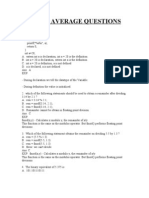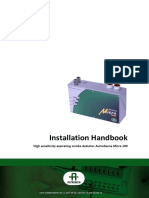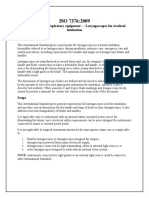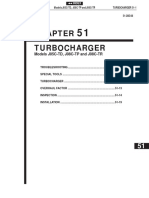0% found this document useful (0 votes)
8 views24 pagesModule 5 Question Bank CPII (FILE Handling)
The document contains multiple-choice questions (MCQs) related to file handling and command line arguments in C programming, organized by different professors. Key topics include file modes, functions for reading and writing files, and the use of command line arguments. Each question is followed by the correct answer, providing a comprehensive review of essential concepts in C programming.
Uploaded by
shreyasbr771Copyright
© © All Rights Reserved
We take content rights seriously. If you suspect this is your content, claim it here.
Available Formats
Download as PDF, TXT or read online on Scribd
0% found this document useful (0 votes)
8 views24 pagesModule 5 Question Bank CPII (FILE Handling)
The document contains multiple-choice questions (MCQs) related to file handling and command line arguments in C programming, organized by different professors. Key topics include file modes, functions for reading and writing files, and the use of command line arguments. Each question is followed by the correct answer, providing a comprehensive review of essential concepts in C programming.
Uploaded by
shreyasbr771Copyright
© © All Rights Reserved
We take content rights seriously. If you suspect this is your content, claim it here.
Available Formats
Download as PDF, TXT or read online on Scribd
/ 24





















































































